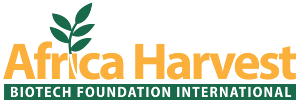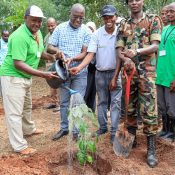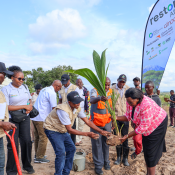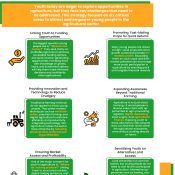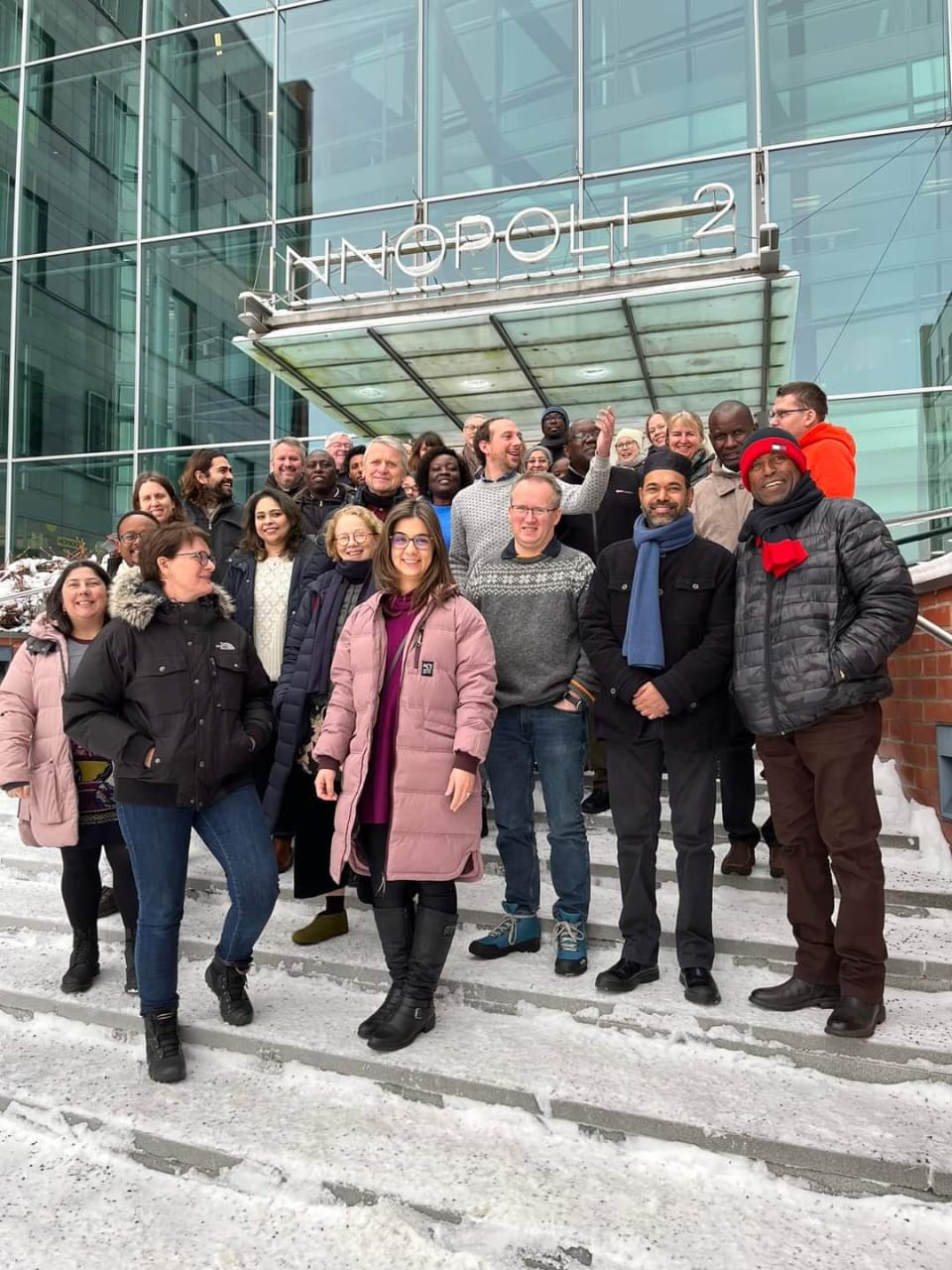
The Innofood Africa Project Comes to a Close!
The Innofood Africa Project, a pioneering initiative funded by the European Union under the Horizon 2020 program, has concluded. It involved 18 partners in Africa and Europe. African partners included universities, civil societies, non-governmental organizations, and private sector institutions in Kenya, Uganda, South Africa, and Ethiopia. European partners comprised universities and private companies in Finland, Belgium, France, and Norway.
The project aimed to research nutritional gaps using indigenous African crops. In Kenya, the focus was on Orange-Fleshed Sweet Potatoes (OFSP), Finger Millet, Cowpea, and Amaranth. Africa Harvest led the research on OFSP in Busia County and Finger Millet in the Chuka area of Tharaka Nithi County. Chuka University, part of the consortium, spearheaded Cowpea and Amaranth research. The goal was to enhance the productivity and commercial viability of the crops to address food security issues in the implementing countries and create an export market for innovative products.
Nehemiah Mburu (Taylor), Programs Lead at Africa Harvest, attended the consortium closing meeting in Helsinki, Finland from the 8th to 11th of January 2024. “This project began amidst a pandemic, so we rarely held physical meetings. Throughout the project, we only met twice, including the final meeting. I was delighted to see the rest of the consortium members again and deliberate on the project’s achievements,” Taylor said.
The project, which began in August 2020 and concluded in January 2024, adeptly managed the challenges posed by the pandemic and was extended by six months due to the pandemic, resulting in a total duration of 42 months. Taylor mentioned that the project worked with eight packages, each tackling a different component. Africa Harvest played a key role in work package three, focusing on farming systems with a plan to increase production at the farmer level by enhancing seed systems and ensuring the commercialization of the selected crops.
“At Africa Harvest, we engaged in farmer participatory research, collaborating closely with groups of farmers, guiding them through every stage of the production cycle, Taylor disclosed. Despite working amidst the COVID-19 pandemic, Taylor was proud that Africa Harvest delivered beyond expectations by developing 13 business plans against the originally anticipated eight. The business plans, which adopted the business canvas model, looked at various factors needed for a business to thrive. “We began uncovering previously unexplored markets for the crops under our purview, including potential export opportunities to regions such as Europe”, he stated. There were also new opportunities presented by learning curves as Taylor observed, “For instance, we discovered that Cowpea flour could serve as a protein substitute for meat, catering to the growing vegan population in Europe.”
Isaiah Matinyi, a 33-year-old OFSP farmer from Busia County, was one of the farmers who directly benefited from the project. His journey into OFSP farming was made possible through his involvement with Africa Harvest in the Innofood Africa Project. He has a comprehensive understanding of OFSP cultivation, covering essential aspects such as best agronomic practices, post-harvest handling techniques, and effective pest and disease management. “Initially, we faced difficulties sourcing for OFSP seeds”. However, he thanks Africa Harvest for providing guidance on constructing net tunnels and subsequently expanding seed production. “We no longer encounter seed shortages. Now, there is a growing interest among people to engage in OFSP farming, as they have seen significant profits from the yield”, Isaiah added.
Another significant outcome of the project was the establishment of an innovation platform to centralize all project-related work. This platform will remain accessible beyond the project’s conclusion, serving as a valuable source of information and research for interested stakeholders. As the project concludes, its legacy remains, shaping the future of agriculture in Africa and beyond.
